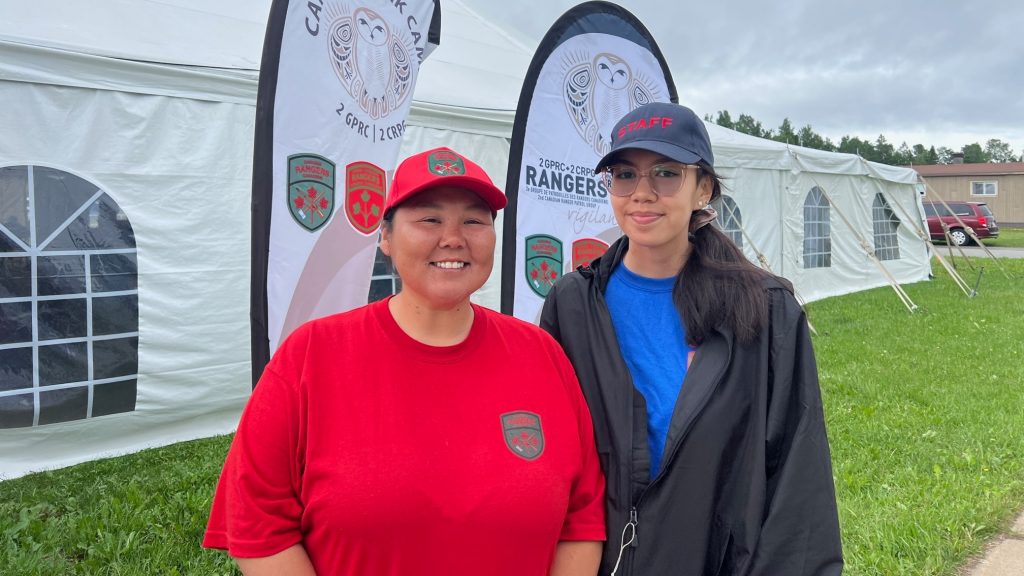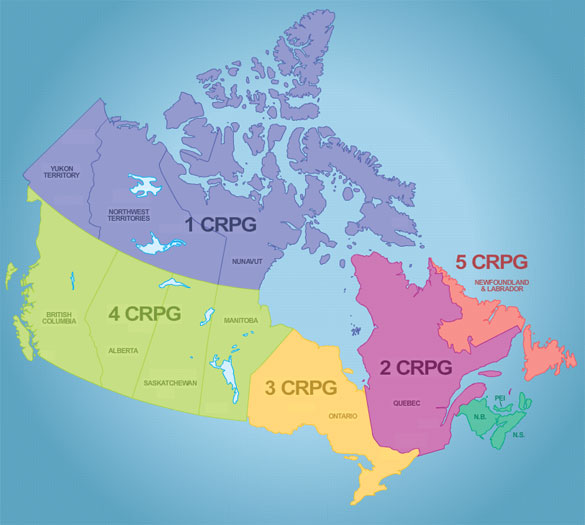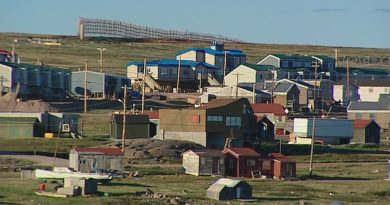Camp OKPIAPIK marks 25th anniversary of Junior Canadian Rangers Program

A major activity for the Junior Canadian Rangers is currently underway in Quebec, bringing more than 250 youth from around the province to the Valcartier Cadet Training Center in Quebec City.
Velesie Adams, a Junior Canadian Ranger from Ivujivik, a community in the Inuit region of Nunavik, has generations of family members that were involved in the program and knew she wanted to be part of it as well.
“My family is full of Junior Rangers and Rangers for so many years and I wanted to follow in their footsteps,” Adams told Eye on the Arctic in a phone interview.
She said even though she’s an introvert, participating in the camp this week is already making a big impact.
“I most enjoy seeing the people in forms, doing the drills, seeing other people making teamwork,” Adams said.

Canadian Ranger MCpl Minnie Ittoshat from the Nunavik community of Kuujjuarapik, has attended the camp 17 times, first as Junior Ranger herself, and then as an adult as a Ranger. She said watching the kids blossom during the gatherings is one of the things she finds most rewarding.
“For some kids it’s their first time down South and meeting a lot of people,” she said. “I love seeing the kids enjoying activities and meeting new people.
“When I was a junior, I loved exchanging about what we did in my community with [others]. Now, with the kids I’m taking care of, I love it when they interact because they’re also going to remember it the way I remember my first Junior Ranger camp and [everything] they did and who they met.”
Long history in Canada
The Canadian Rangers are part-time reservists within the Canadian Armed Forces. Rangers are not trained combat soldiers, but with their knowledge of their local environments and ability to easily navigate in the country’s harshest and most challenging regions, they act as the military’s eyes and ears.
There are approximately 5,000 Rangers located in 200 of Canada’s most remote and isolated communities. The majority of the communities, located in the North and on the country’s east and west coasts, are Indigenous.

The Rangers are tasked with reporting anything they see that’s out of the order in the lands and waters around their communities. Other roles encompass everything from inspecting North Warning System sites for things like storm damage, to disaster relief and response, to performing search and rescue operations or participating in community events.
They also help supervise activities with the Junior Rangers, a youth program started in the mid-1990s, to teach traditional and life skills, as well as Ranger activities.
25th anniversary of youth program
During Camp OKPIAPIK, participants are taking part in outdoor and traditional activities as well as practicing land and Ranger skills.
The Junior Rangers participating come from 36 remote and isolated Quebec communities. Forty-five Canadian Rangers (CR) and 36 members of 2 CRPG Headquarters are also participating.

“Camp OKPIAPIK is the major youth activity of the 2nd Canadian Ranger Patrol Group, and it is with honour that we mark the 25th anniversary of this youth program which is possible thanks to the support of the communities, adult committees and the Canadian Rangers Patrols,” Lieutenant Colonel Nicolas Hilaréguy, 2nd Canadian Ranger Patrol Group Commanding Officer, said in a statement.
Camp OKPIAPIK runs June 24 to July 2.
Comments, tips or story ideas? Contact Eilís at eilis.quinn(at)cbc.ca
Related stories from around the North:
Canada: The Canadian Rangers at 75: The Eyes and Ears of the North, Eye on the Arctic
Finland: Connection to nature, concern for environment amongst results of Sami youth survey, Eye on the Arctic
Norway: Creating youth links key to driving Canadian-Norwegian cooperation, conference hears, Eye on the Arctic
Russia: Wagner Group continues recruiting in Murmansk in Arctic Russia, The Independent Barents Observer
United States: U.S. general says Alaska military cuts not final without Arctic plan, Alaska Public Radio Network



